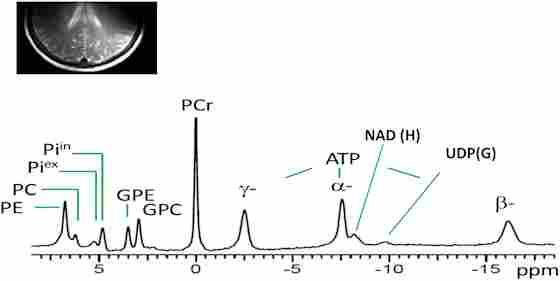Overview
Mild cognitive impairment (MCI) occurs when there is a deficit in cognitive function. This form of cognitive decline has a high occurrence of progression toward Alzheimer's disease (AD). In this study, researchers identified mild cognitive impairment (MCI) as a potential area to determine the relationship between cognitive and brain energy metabolism (BEM) with the goal of exploring early biomarkers of neuronal function before AD diagnosis. Using P MRS techniques, researchers observed that cognitive performance of executive function in the parieto-occipital lobe indicated an inverse relationship between BEM indices and cognitive support. Individuals with higher BEM in the parieto-occipital lobes had lower cognitive performance. These findings suggest the potential for BEM utilization as a cognitive measure of MCI.
Figure 1. "Relationship of Parieto-Occipital Brain Energy Phosphate Metabolism and Cognition Using 31P MRS at 7-Tesla in Amnestic Mild Cognitive Impairment"




